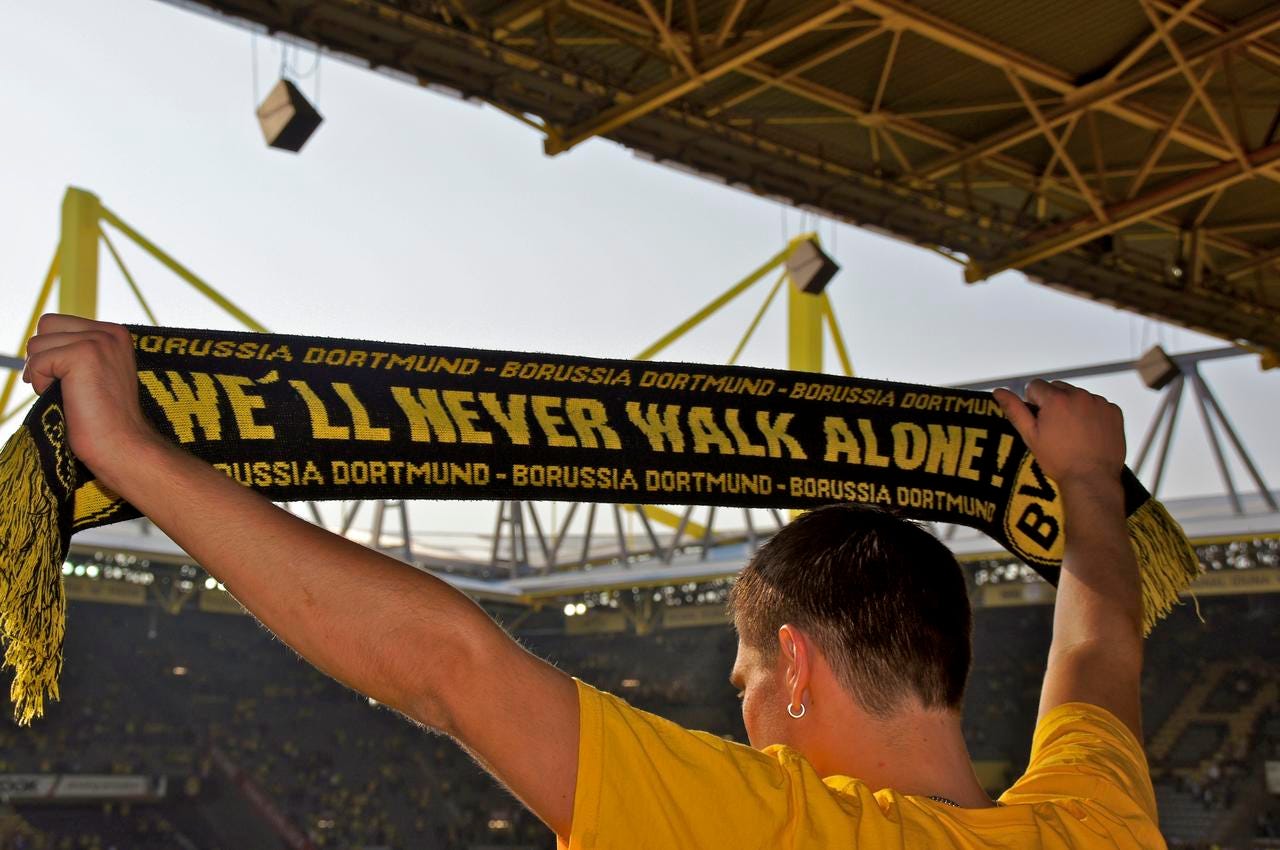The Greatest Fans on Earth
A startup soccer team in Dortmund once gave the steelworkers and coalminers of this hardscrabble German city something to live for. A century later, their die-hard descendants are still bleeding black and yellow.
There are cities that have everything, there are cities that have nothing, and somewhere between glistening skyscrapers and fallen walls is a city that has one thing.
That place is Dortmund and that thing is soccer.
Dortmund barely existed until the late 1800s, when a steel factory was built. The steel workers who brought their families to create this city in northwest Germany worked all day killing themselves, and then formed a soccer team and found they had more energy after work.
Borussia Dortmund, or BVB, was formally introduced in 1909 as a club for the men of steel and coal, to provide a weekly exertion that didn’t consist solely of beer and gambling. It gave them something to live for other than surviving diseases and broken limbs.
Keep reading with a 7-day free trial
Subscribe to Narratively to keep reading this post and get 7 days of free access to the full post archives.




